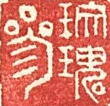Some info on the Listening and Smelling exam
Listening and Smelling
Quality of voice: faint, frail, diffic getting words out: Lung qi defic or Yuan qi depleted
Rough, loud, full: repletion of yang qi
Hoarse voice: repletion if something blocking voice (will have other sx)
Defic if other defic sx
Reluctant speech, withdrawn, slow: coldness
Incessant speech: heat
Sudden loss of voice: wind heat
Gradual loss of voice: lung vacuity
5 element sounds:
Quality of Shen thru verbal expression:
full and impaired consciousness and talking loud: dampheat
listless and mumbling: heart qi vacuity
Listening to movements: keeps still but utters groans: joint pain
Clear voice but distinct and low and succinct: headache
Weak and indistinct: chest constriction/weakness
Respiration:
Coarse and loud: repletion/fullness
Difficulty breathing: vacuity/feeble/emptiness
Asthma: Diffic inhaling: feeble/empty: feels better w/ deep breath: Kidney qi not grasping Lung qi (slight wheezing)
Acute: coarse and loud: better w/ exhale (can’t exhale): repletion pathogen in lung: phlegm
Coughs: loud: fullness/repletion
Dry: unproductive, no phlegm: lung yin defic
Dry w/ tickle at night: kidney yin defic (KI 6)
Hiccoughs: if short, just diaphragmatic spasm
Loud: repletion heat –usually stomach qi
Long-term, but low and weak: weak stomach qi (usually coldness)
Smell: bad breath: stomach heat or oral dental decay
Belching: foul or sour belch is retention of food in stomach
5 phase smells:
hepatic problems: sticky sweet
cancer and diabetes: ammonia
strong or foul smells usually associated with heat and repletion.
Absence of smell or ammonia: cold diseases and vacuity
Monday, July 30, 2007
The Four Examinations, Part 4 (Listening and Smelling Diagnosis)
Subscribe to:
Post Comments (Atom)




No comments:
Post a Comment